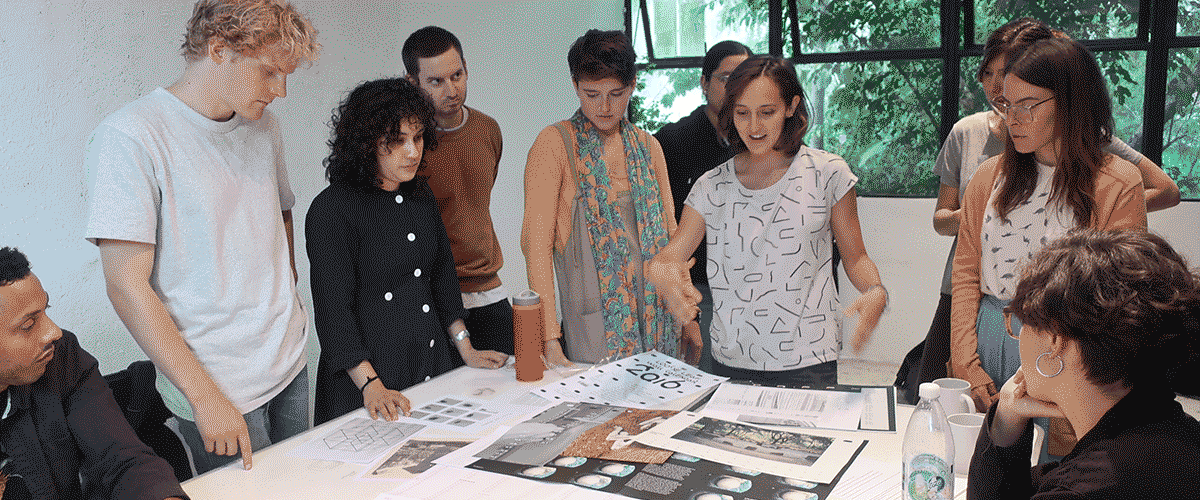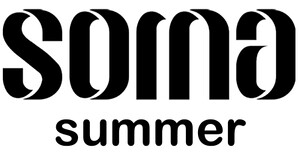July 6-August 28, 2020
Application deadline: February 16, 2020
SOMA Summer is an eight-week international program in Mexico City for artists, curators, art historians, and other creative producers. The program is built around a specific topic each year, led by renowned Mexican and international artists, curators, and researchers. Participants have the opportunity to be involved in a comprehensive series of seminars, workshops, individual critiques, and studio and site visits, which will help them analyze their work and define the contours of their creative practices. The group of thirty artists will also collaborate in a self-organized publication as a conclusion to their thoughts and experiences throughout the summer.
SOMA Summer 2020: Social Justice
In the last century, the relationship and exchange between art and politics has given us a diversity of genres and artistic practices ranging from documentary photography to Dadaist collage, from feminist performance to environmental protests. These cultural manifestations have engaged with different areas of human conflict such as violence, environmental degradation (mass migration/corruption/ institutional racism), rapid urban development, and resource exploitation to name a few.
Yet in today’s world, the strategies, tactics, and roles of the political art practitioner seem insufficient or ineffective in their equation of justice and the social. This is especially problematic when we reflect on the ways that many politicized artistic practices fluctuate between aesthetics, politics, activism, science, and the art market.
SOMA Summer’s 2020 program, Social Justice, aims to question some of the common notions associated with the relationship between art and politics. The program invites critical thinkers, artists, and theorists to come together and open up a dialogue that challenges our understanding of contemporary art involved in the political arena.
Applications
–All applications should be completed via SOMA’s website. Apply here.
–Résumé
–Artist’s statement
–Letter of interest
–Portfolio
–Contact information for 3 references
Financial support
SOMA is a small non-profit organization and, unfortunately, cannot provide full-tuition scholarships for the summer participants. Partial financial support is available based on portfolio review, statement, and proof of financial need. SOMA is also partnered with several universities and institutions in order to help support participants with their tuition and/or accommodations.
Collaborators:
Eduardo Abaroa (artist, Mexico), Ricardo Alzati (artist, Mexico), Tania Candiani (artist, Mexico), Amy Sara Carroll (artist and writer, United States), Giacomo Castagnola (artist, Peru), Marcos Castro (artist, Mexico), Tatiana Cuevas (curator, Mexico), Helena Chávez (art historian, Mexico), Virginia Colwell (artist, United States), Mariana David (curator, Mexico), Irving Domínguez (curator, Mexico), Ricardo Domínguez (artist, United States), Diego Flores Magón (curator, Mexico), Eulogio Guzmán (archeologist, Mexico), ), Julio García-Murillo (curator, Mexico), Magnolia de la Garza (curator, Mexico), Mauro Giaconi (artist, Argentina), Fabiola Iza (curator, Mexico), Esteban King Álvarez (curator, Mexico), Alejandra Labastida (curator, Mexico), Catalina Lozano (curator, Colombia), Yoshua Okón (artist, Mexico), Josefa Ortega (curator, Mexico), Bárbara Perea (curator, Mexico), Angel Nevarez and Valerie Tevere (artists, United States), Lucía Sanroman (curator, Mexico), Itala Schmelz (curator, Mexico), Luis Vargas (art historian, Mexico) and Felipe Zúñiga (artist/pedagogue, Mexico).
About SOMA
SOMA is an experimental pedagogical project launched in 2009, conceived as a platform for reconsideration and reflection. Students and participants have the opportunity to critically analyze their proposals; revisiting creative processes is encouraged. For the past ten years, SOMA has provided a counterpoint to the dynamics of art schools, museums, and galleries. Designed and lead by Carla Herrera-Prats,SOMA Summer has become a leading international program with 214 participants from 45 nationalities, and the participation of 512 mentors/guests.

